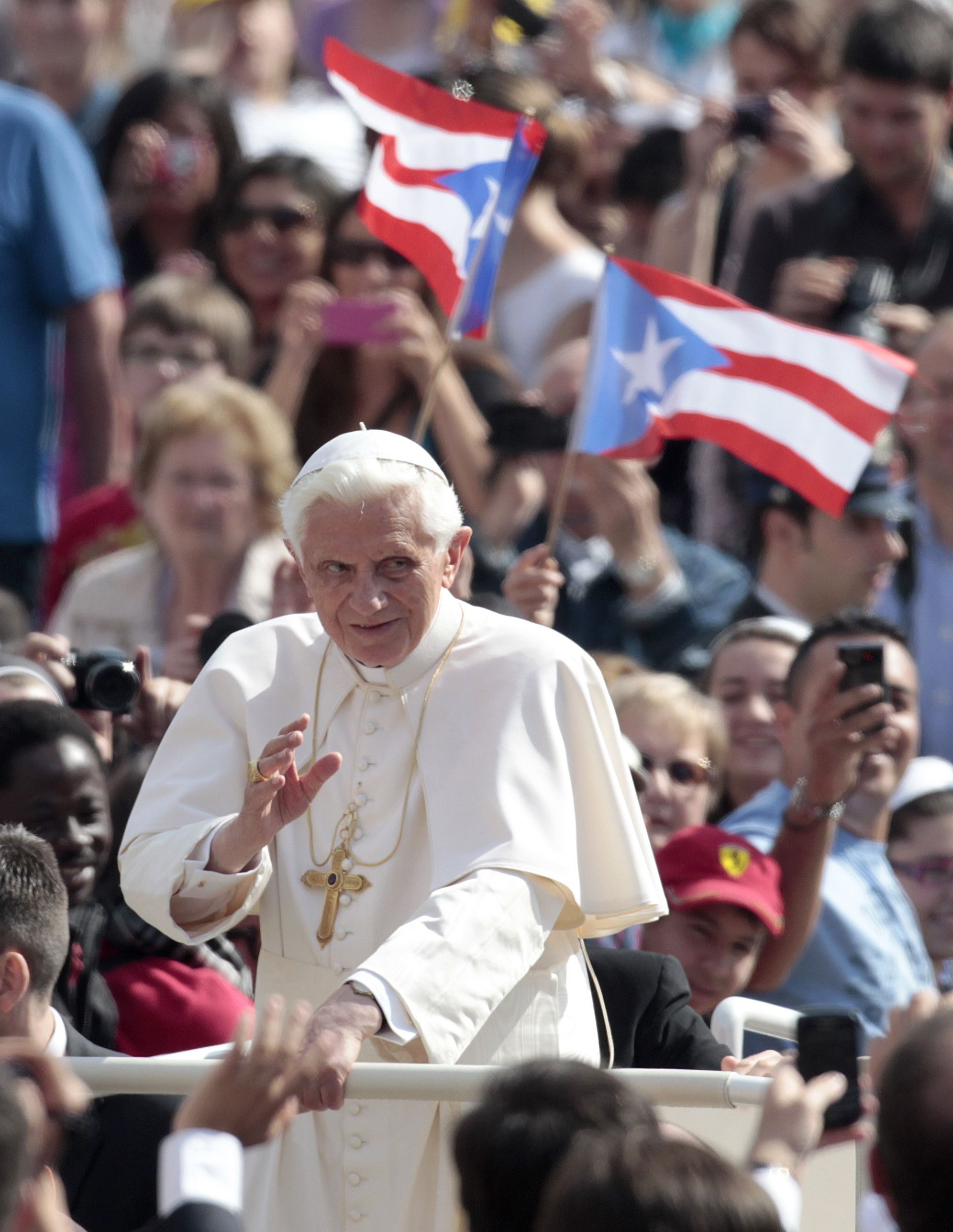NICOLE WINFIELD, Associated Press
VATICAN CITY (AP) - Pope Benedict XVI denounced priests who have questioned church teaching on celibacy and ordaining women, saying Thursday they were disobeying his authority to try to impose their own ideas on the church.
Benedict made the rare and explicit criticism from the altar of St. Peter's Basilica in his homily on Holy Thursday, when priests recall the promises they made when ordained.
In 2006, a group of Austrian priests launched the Pfarrer Initiative, or pastor initiative, a call to disobedience aimed at abolishing priestly celibacy and opening up the clergy to women to relieve the shortages of priests.
Last June, the group's members essentially threatened a schism, saying the Vatican's refusal to hear their complaints left them no choice but to "follow our conscience and act independently."
They issued a revised call to disobedience in which they said parishes would celebrate Eucharistic services without priests, that they would let women preach, and they pledged to speak out publicly and frequently for female and married priests.
The group now claims more than 300 Austrian priests and deacons as well as supporters in other countries, and its influence has grown to such an extent that top Austrian bishops met with Vatican officials in January to discuss how to handle them, Italian news reports said.
So far, neither the Vatican nor the archbishop of Vienna, Cardinal Christoph Schoenborn have imposed any canonical penalties on them.
In his homily, Benedict said the dissidents claim to be motivated by concern for the church. But he suggested that in reality they were just making "a desperate push to do something to change the church in accordance with (their) own preferences and ideas."
"We would like to believe that the authors of this summons are motivated by concern for the church, that they are convinced that the slow pace of institutions has to be overcome by drastic measures, in order to open up new paths and to bring the Church up to date," he said. "But is disobedience really a way to do this?"
He said Jesus always followed true obedience to God's will, not "human caprice."
The head of the initiative, Rev. Hellmut Schueller, downplayed the severity of Benedict's message and said the pope was merely asking for reflection on whether disobedience can reform the church.
In a telephone interview with The Associated Press, Schueller noted that Benedict didn't forbid what the dissident priests were doing or advocating.
"We are listening with interest to this message," he said. "I cannot see it as a very sharp wording."
The members of the initiative, he said, will reflect on Benedict's words as part of a dialogue he said he hopes to open with Austrian bishops.
"We have decided to go this way because it's the way of our conscience, as faithful, and we are expressing only the opinion of the people at the base of the church."
He said the initiative did not seek to split the church or create schism, saying the positions articulated in the call for disobedience increasingly reflected the will of ordinary Catholics.
Any divisions that are being created, he said, are between the base of the church and the hierarchy.
Holy Thursday homilies are often unusual in that the pope uses them to issue direct messages to priests. In 2006, for example, Benedict read a letter written by a cleric who was killed as he prayed in Turkey.
And on Holy Thursday in 2002, Pope John Paul II broke his silence over the explosion of the U.S. sex abuse scandal, denouncing the sins of priestly abusers and the "grave scandal" that was casting a "dark shadow of suspicion" over all priests.

